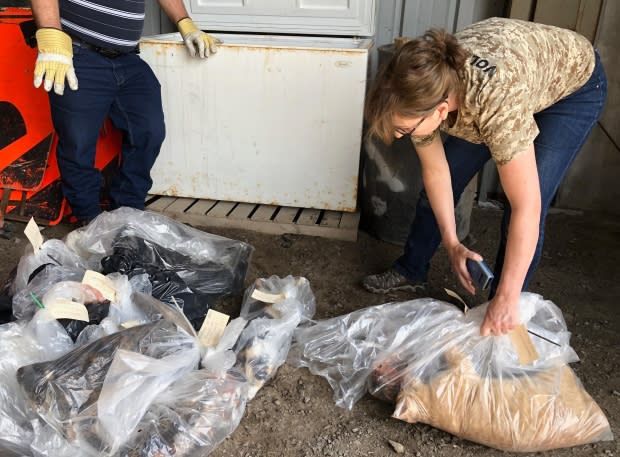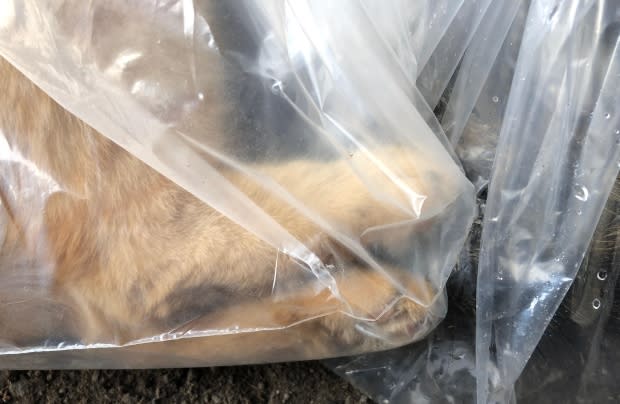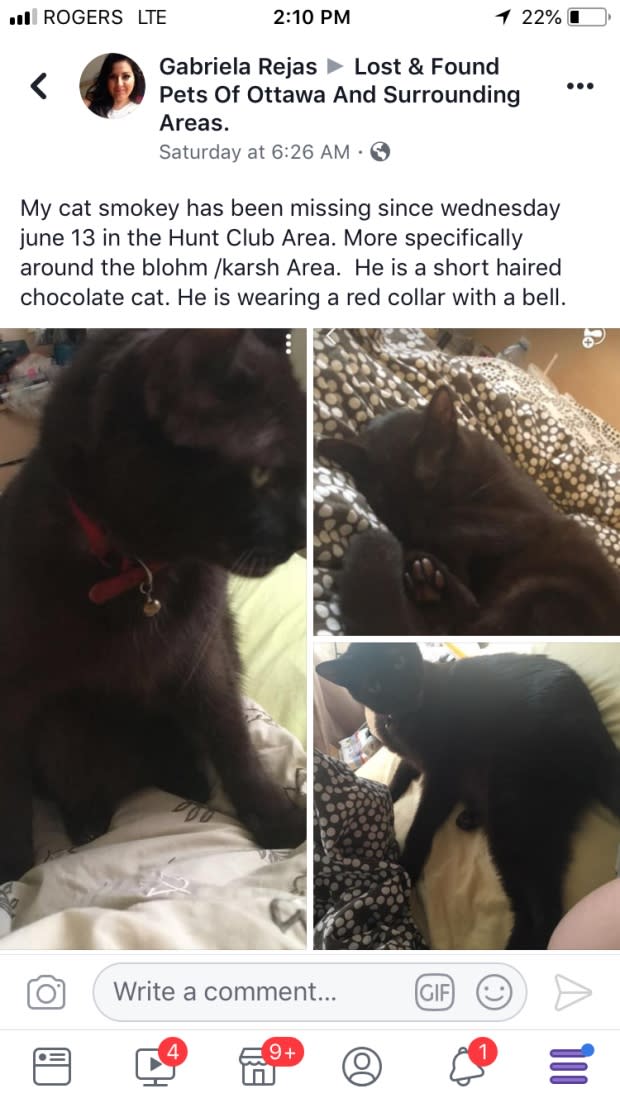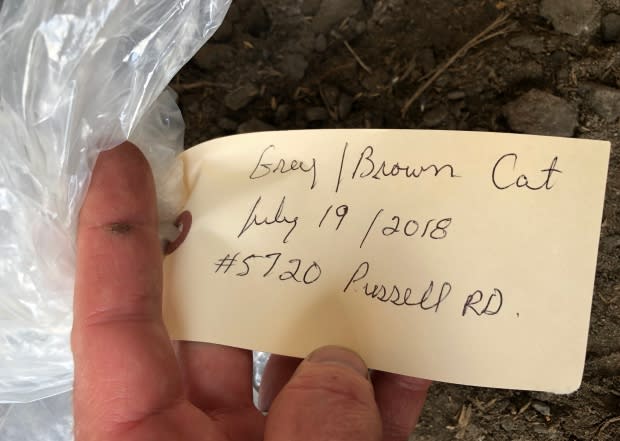City vows to fix 'horrifying' system for storing dead pets

The City of Ottawa is vowing to improve the way it attempts to reunite dead pets with their owners after an animal activist exposed a system she describes as haphazard and inhumane.
When city workers respond to a call about a dead cat or dog on an Ottawa street, they place the remains in a bag labelled with the date and location of the find, as well as a brief description of the animal.
'Nobody knows about these freezers, the way they just throw them in there, one on top of the other.' - Gabriela Rejas, cat owner
The bagged remains are then placed in chest freezers at public works facilities across the city.
After that, there appears to be little effort to contact either the dead animal's owner or the Ottawa Humane Society, even if the pets are microchipped or wearing other identification, according to Claire Castell.

No microchip scanners
Castell, a volunteer with Ottawa Stray Cat Rescue for six years, knew about the freezers and first visited the public works facility on Hurdman Road when she lost one of her own cats in March.
There, she said she encountered an inadequate and disorderly system where staff weren't even equipped with a microchip scanner to help find the animals' registered owners.
"I was very upset," Castell said. "I couldn't believe that a simple thing like a microchip reader, that the city didn't have one at any of the yards and that nobody had thought that maybe it would be a good idea to get one."

Luckily, Castell has her own $100 scanner that she uses in her volunteer work. When another cat in her care disappeared two weeks ago, she returned to the Hurdman facility, scanner in hand.
She didn't find the cat she was looking for, but she did scan at least 50 other frozen animals, 15 of which had microchips.
Castell recorded the information and has passed it on to a contact with access to the microchip database, with the aim of getting in touch with the animals' owners.
One animal that wasn't microchipped, a chocolate brown cat wearing a red collar with a tiny bell, looked familiar. She'd seen its picture on the Ottawa Valley Lost Pet Network's Facebook page.
Castell contacted Gabriela Rejas, the woman who posted the picture of five-year-old Smokey, to tell her she'd found her missing pet in the freezer.
Rejas, 29, dropped what she was doing and rushed over to the city facility.
"I was like, 'Is this the place where you guys keep dead cats?'" Rejas said she asked the first worker she saw.
"Come with me," the man told her, and led her to a room containing two chest freezers.
Finding Smokey
"It was a horrifying picture when I opened the freezer," a tearful Rejas recalled.
She and the man lifted out about 25 frozen, bagged animals before she spotted the familiar brown fur.
"The minute I saw Smokey, I started crying," she said.
Her sadness has now given way to anger.
"Nobody knows about these freezers, the way they just throw them in there, one on top of the other. I don't agree with that."

'We understood there was a process'
Ottawa Humane Society executive director Bruce Roney agreed that the city's reporting system is "spotty."
But Roney told CBC he was under the impression that city staff did scan dead pets for microchips and made an effort to contact owners.
"We understood there was a process in place that they would scan the animal," Roney said.
However an email from the Ottawa Humane Society intake department obtained by CBC News appears to contradict that impression. The form letter instructs pet owners to contact the city at 311, and warns "City of Ottawa Roads Dept employees do not have microchip scanners."

City vows to do better
In a statement to CBC last week, the city's director of roads and parking services, Laila Gibbons, said the city "has a robust and transparent process that aims at reuniting families with their pets."
Late Friday, however, the city issued a new statement acknowledging there's room for improvement.
"Based on inquiries made as a result of the resident's concerns, it is clear that the policy has not been strictly adhered to by yard staff at some City yards," reads the statement, also attributed to Gibbons.
"We thank the concerned resident for bringing this to our attention. As a result, the City will be implementing mandatory training for staff regarding this policy to ensure that it is adhered to equally at all yards across the City. Furthermore, instead of utilizing scanners owned by By-law and Regulatory Services, the Public Works and Environmental Services department will be purchasing scanners for permanent use at each yard."
'Database' in doubt
The city also said it maintains a database of dead domestic animals collected from city roads, and keeps the remains for between 60 and 90 days before they're taken for burial.
But some labels observed by CBC on dead cats at the city's Cyrville Road public works yard date back nearly a year, to July 2018.
As for the "database," Castell said she's only ever seen a rough list containing far fewer entries than the 50 to 60 cats and dogs she found in the Hurdman freezers.
The city did not say how often the owners of the dead pets in its freezers are successfully contacted.
Castell believes if it wasn't for her intervention, grieving pet owners like Rejas would never have known what happened to their companions.
"If I hadn't done this, she might still be looking, and might look for months. Some people look for years for their pets," Castell said.
"This was someone's pet, in many cases was a member of their family. Some people, that's all they have is their pet."


